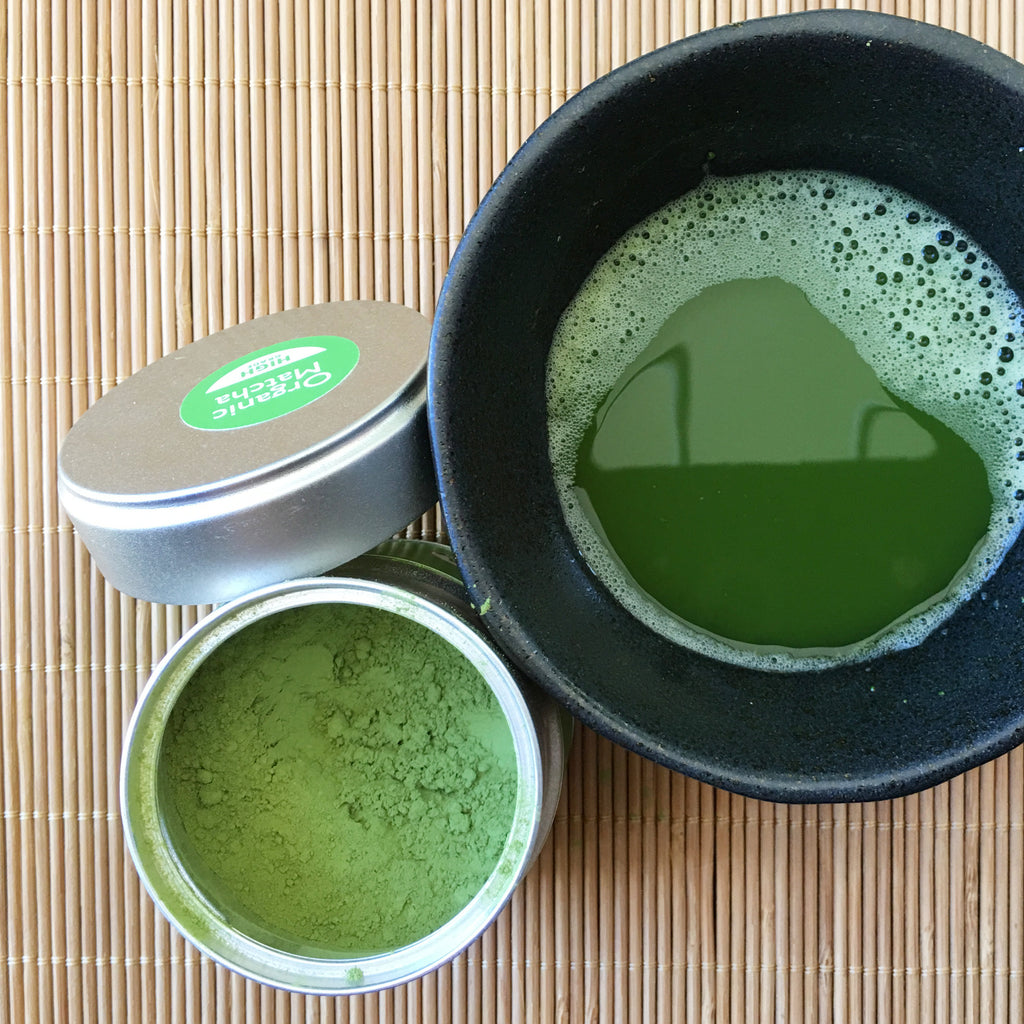Matcha the Magical Green Powder
Posted by PETER HAINZL

If there is one tea that gives you zen and power, Matcha will be it.
Matcha (Japanese Green Tea Powder) is regarded by many as super-food.
Traditionally, Matcha is the tea that Japanese use for the tea ceremony and traditional Japanese sweets such as Wagashi and Chagashi.
German chemist Richard Willsttter (1872-1942) discovered that chlorophyll, a nutrient in Matcha, is a great oxygen carrier, hence helping the body to quickly repair and heal. Chlorophyll is also useful in cleansing the body from toxins.
Unlike most tea powder, Matcha is a premium grade of tea only produced in the strictest standard and small quantities to ensure freshness and quality.
There are 2 categories of Matcha based on the leaves used to make the powder – Tencha or Aracha / Sencha.
With each category of Matcha, there are still many grades. Tencha Matcha is made the traditional way and it takes an hour of careful grinding to yield 20g Matcha powder! (This is the one we sell in 30g tin)
Matcha is fine like flour, and Tencha Matcha is usually finer than Aracha Matcha, and it’s best savoured on its own. Tencha Matcha is suitable to use in Koicha and Usucha tea ceremony.
CHECK OUT OUR CURRENT MATCHA OFFERS NOW
| Tencha Matcha | Aracha Matcha |
| Tencha is the leaf traditionally made into Gyokuro and Matcha | Aracha is traditionally made into Sencha |
| More vibrant green colour – powder and brew | Less vibrant green – powder and brew |
| Traditionally used in Japanese tea ceremony | Traditionally used in Japanese sweets |
| Grow in part-shade | Grow in full sun |
| More Caffeine and L-theanine | More Catechins antioxidants |
| Only tender leaves from first harvest of the year is used | Made from harvests throughout the year |
| Stronger taste, less bitter | More economical |
| Great to drink on its own | Great for making food, like cookies, milkshake |
| Often reserved for tea masters and tea ceremony performers | More popular and the default “export grade” Matcha |

BUY MATCHA NOW
Buying Tips:
- Matcha should be purchased in small packets to ensure minimum degradation of quality.
- Consume as soon as possible once open, as Matcha will lose its flavour and oxidises quickly.
- If your packet of Matcha starts to lose its vibrant colour and fresh green tea smell, then no point of drinking it. Cook with it, or make something funky with it, like matcha face mask!
- Storing Matcha in the fridge can slow down this aging process, but will not stop it.
- Some very bright Matcha powder from Asian stores actually has sugar, baking soda and colouring in it. Check ingredients if you are after genuine matcha powder.
Tencha Matcha is suitable to use in Koicha and Usucha tea ceremony. Only the best leaves from the only one harvest per year (Ichibancha harvest) is deemed worthy of turning into Tencha Matcha.

AUSTRALIA'S FINEST LOOSE LEAF TEAS
Explore Australia's largest selection of Premium Teas & All-Natural Organic Herbal Blends.


